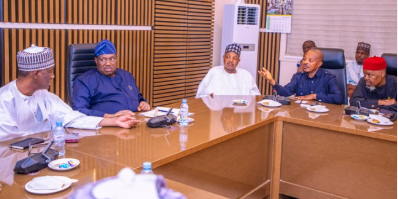By Jemimah Wellington, JKNewsMedia Reporter
THE PROPOSED nationwide demonstration against a 50% increase in telecommunications tariffs will not proceed as planned.
The Nigeria Labour Congress (NLC) has opted for negotiations with the federal government after rejecting the tariff hike approved by the Nigerian Communications Commission (NCC) last month.
The decision to suspend the protest followed late-night discussions on Monday between labour leaders and top government officials, including representatives from the ministries of finance, communication, labour, and the NCC.
Both parties have agreed to form a 10-member committee, comprising equal representation from the government and the labour movement, to assess the tariff adjustment and propose a resolution within two weeks.
NLC President Joe Ajaero, speaking to reporters after the meeting, emphasised that labour had been excluded from consultations before the NCC sanctioned the tariff hike.
“The NLC is the largest organisation in Africa, and no stakeholder engagement can be valid without our input. That was our position, and they agreed to set up a broader committee to re-evaluate the tariff structure,” he said.
The telecom operators attributed the price adjustment to soaring operational costs caused by inflation, which is nearing 35%, and a weakening naira.
However, the NLC insists the increase is “insensitive” and places an additional burden on Nigerians already struggling with high living costs.
The union had earlier threatened a boycott of telecom services or a strike if the government failed to reconsider its stance.
Ajaero clarified that while the immediate protest is on hold, the union remains committed to advocating for workers’ rights.
“The committee’s outcome will determine our next course of action—whether to proceed with protests, boycotts, or other forms of industrial action,” he stated.
Beyond the telecom sector, the NLC also raised concerns over other economic pressures, including rising electricity tariffs and what it described as an “unbearable tax regime” that affects workers.
“These remain unresolved issues that must be addressed,” Ajaero added.
Minister of Information and National Orientation Mohammed Idris confirmed the government’s commitment to engaging with the union.
“A study conducted by the NCC led to this tariff increase, and we have agreed that a new committee will re-evaluate that study. Within two weeks, the committee will present recommendations for further consideration,” he said.
The suspension of the protest marks a temporary truce in the standoff between labour and the government.
However, with the economic challenges facing Nigerians, the coming weeks will determine whether tensions escalate, or a compromise is reached.





